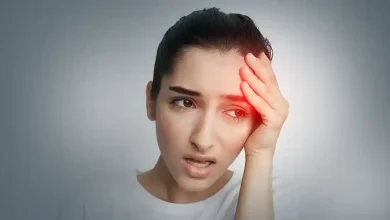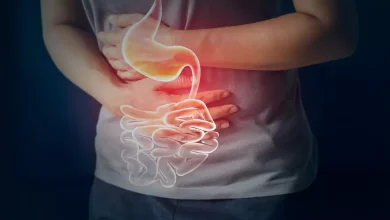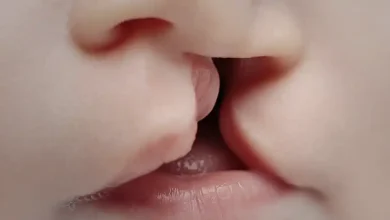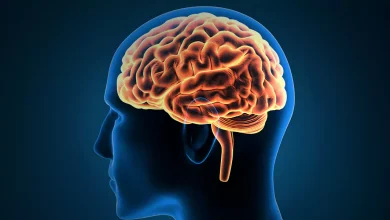All about Depression

What is Depression?
Depression is a mood related condition that creates a continuous feeling of sadness and loss of interest. Also known as major depressive disorder or clinical depression, it affects the way how one feels, thinks, and behaves and can result in an array of emotional and physical disorders. It can adversely affect your normal day-to-day activities, and at times you may feel as if life isn’t worth living. It may give you a persistent feeling of emptiness, sadness, or inability to feel pleasure without a clear reason. It is different from grief and other emotions you may feel because of some setbacks in life.
What are the Types of Depression?
Different Types of Depression Include:
Clinical Depression: The symptoms of clinical depression include constantly feeling sad, low, or worthless for at least two weeks along with having other symptoms like insomnia, loss of interest in activities, or change in appetite. It is the most severe and common form of depression.
Persistent Depressive Disorder (PDD): Persistent depressive disorder is mild or moderate depression that can last for at least two years. The symptoms are less severe as compared to major clinical depression. It is called PDD dysthymia by doctors and psychiatrists.
-Disruptive Mood Dysregulation Disorder (DMDD): DMDD creates conditions such as chronic, intense irritability and frequent anger outbursts in children. Symptoms generally start by the age of 10.
Premenstrual Dysphoric Disorder (PMDD): With PMDD, you have premenstrual syndrome (PMS) symptoms along with mood symptoms, including extreme irritability, anxiety, or depression. These symptoms improve in some days after your period begins, but they can be serious enough to create problems in your life.
Depressive Disorder Due to Other Medical Conditions: Sometimes some other medical conditions can create changes in your body that may lead to depression. Mostly medical conditions like hypothyroidism, heart disease, Parkinson’s disease, and cancer causes this type of depression. If you’re able to detect and treat the underlying condition, the depression is curable easily.

What are the Symptoms of Depression?
The symptoms of depression vary according to type, personality, and severity. General symptoms of depression include:
- Constant feelings of sadness, and hopelessness without any specific reason.
- Irritability
- Not enjoying things you used to enjoy before.
- Getting frustrated easily.
- Change in appetite and eating too much or too little
- Gaining or losing weight
- Anxiety
- Sleeping disorders like insomnia or hypersomnia
- Low energy and tiredness
- Problems in concentrating, making decisions, or remembering things.
- Headache, stomachache, or sexual dysfunction.
- Having suicidal and self-harm feelings
What are the Causes of Depression?
Researchers across the globe are not yet able to know the exact causes of depression but there may be several factors contribute to its development, including:
Brain Chemistry: An imbalance of neurotransmitters, including serotonin and dopamine, can lead to the development of depression.
Genetics: It is believed that if you have a close relative like a biological parent or sibling who has depression, you are three times as likely to develop the condition though you can have depression without any of your relatives having it.
Stressful Life Events: Some tragic life events such as the death of someone close to you, divorce trauma, no support system, or isolation may also contribute to developing depression.
Medical Conditions: Certain medical conditions such as chronic pain and diabetes can lead to depression.
Medication: Some medications can cause depression as a side effect. Also, drug and alcohol abuse can cause depression or make it worse.
What are the Risk Factors of Depression?
Risk factors of depression include:
Major Life Changes: Stressful changes in your life can result in bouts of depression. These changes are anything like problems in your job, monetary issues, marital life, death or loss of a loved one, etc.
Little or No Social Support: If you don’t have a support system then the chances of depression become higher. Feelings of isolation or a lack of social contact are common in people suffering from depression.
Mental Health: Certain mental health factors increase the risk of depression. People with low self-esteem, a poor outlook, or those who feel overwhelmed by stress are prone to depression.
Gender: Women are more likely to suffer from depression as compared to men and changes in hormone levels can be a reason for this. This can happen with your monthly periods, pregnancy, miscarriage, after having a baby, or menopause.
Age: Depression can occur at any age, but the risk is higher for older people. Many times, it is ignored as a common sign of aging, but this isn’t the case.
Race and Ethnicity: Depression is more common in White people but when it does occur in Black people, it’s often more severe and long-lasting.
Sleep Disorders: Long-term sleep problems are connected to higher rates of depression. If you have problems getting sleep regularly, it’s important to seek medical help.
Medicines: Certain medicines are linked to depression
Drug Abuse: Drug abuse and drinking alcohol are related to depression.
What are the complications of Depression?
How is depression diagnosed
Doctors diagnose depression based on the understanding of your symptoms, medical history, and mental health history. They may diagnose you with a specific type of depression, like seasonal affective disorder or postpartum depression, depending on the context of your symptoms.
To get a diagnosis of depression, you must have five depression symptoms every day, nearly all day, for at least two weeks.
Some procedures your doctor may prescribe to diagnose depression include:
Physical exam: You may be required to go through a physical exam where your doctor will ask questions about your health. Sometimes, depression may be connected to a rudimentary physical health condition.
Lab tests: Your doctor may prescribe you for a blood test known as a complete blood count or test your thyroid to ensure it’s functioning properly.
Psychiatric Evaluation: During the psychiatric evaluation, your psychiatrist may ask you questions about your symptoms, thoughts, feelings, and behavior patterns that are making you depressed. You will be given a questionnaire to fill up that will help to answer the questions.
What are the Complications of Depression?
The complications of depression can affect your health, and way of living and change the way you think and behave.
Some complications of depression include:
Weight Gain and Obesity: Depression usually leads to people turning to food for comfort and eating more than normal and even some antidepressants make you put on weight. In fact, weight gain is one of the main reasons people stop taking their depression meds. Obesity is one of the main complications of the depression.
Chronic Illness: People with clinical depression often have one or more long-term diseases, like cancer, multiple sclerosis, heart disease, and diabetes. Even though many of these disorders don’t have cures, you can ease the symptoms but depression makes them harder to treat and control and it explains why people with severe depression die sooner than people who aren’t depressed. Lifestyle factors such as lack of exercise, unhealthy diet, and drug/alcohol abuse may also contribute to poor health and early death.
Chronic Pain: There’s a strong connection between physical pain and depression. They share a few of the same neurotransmitters — brain chemicals are the messengers between nerves. Depression may make you more sensitive to pain, and chronic pain can trigger depression. Because the two have so many links, doctors often treat them together, sometimes with the same medications.
Self-Harm: People with depression are more likely to harm themselves and even commit suicide than others.
Substance Abuse: Drug abuse and drinking excessive alcohol are other complications of the depression.
Cognitive Changes: Clinical depression can change the way your brain functions and because of this, you may find it difficult to concentrate or remember things which may affect your daily activities.
What are the Treatment Options for Depression?
The treatment options for depression include:
Psychotherapy: Psychotherapy also known as talk therapy is very efficient to treat depression. It involves talking with a professional therapist who will listen to the problems you are facing and helps you identify and change unhealthy emotions, thoughts, and behaviors. There are various types of psychotherapy such as cognitive behavioral therapy (CBT) tha is the most common one. At times, brief therapy is all you require to cure depression. Other people with severe depression may continue therapy for several months or years.
Medication: Prescription medicine commonly known as antidepressants can help change the brain chemistry that is causing depression. There are various types of antidepressants available, and your doctor will give you what suits your condition. Some antidepressants have side effects, so always take antidepressants only after counseling with your doctor.
Complementary Medicine: This includes therapies such as acupuncture, massage, hypnosis, and biofeedback which can be helpful to treat mild depression.
Brain Stimulation Therapy: Brain stimulation therapy is used to treat people with severe depression or depression with psychosis. Brain stimulation therapy includes electroconvulsive therapy (ECT), transcranial magnetic stimulation (TMS), and vagus nerve stimulation (VNS).
Living with Depression: Living with depression is not easy especially if it’s severe. You will not be able to live a normal life as things you used to enjoy once are not enjoyable anymore. There will be a constant feeling of sadness and grief without a particular reason and sometimes you may feel like committing suicide or some kind of self-harm. If you feel symptoms of depression, the most important thing is to not keep it inside you. Talk with your close friends and family members about your feelings, seek professional help visit a therapist. You should know that depression is curable and there is no shame in admitting that you are going through the phase of depression. Try to keep yourself busy, do physical exercise, sleep regularly at least for eight hours a day, eat a healthy diet, avoid alcohol which is a depressant, and spend time with people you love.
Whom to Consult?
If you feel depressed for more than two weeks then immediately take an appointment to see your doctor or mental health professional because it can be a sign of clinical depression. If you’re reluctant to seek treatment, talk to a friend or loved one, any healthcare professional, or someone else you trust. A mental care professional will talk to you and after diagnosing your condition, will start your treatment accordingly.




